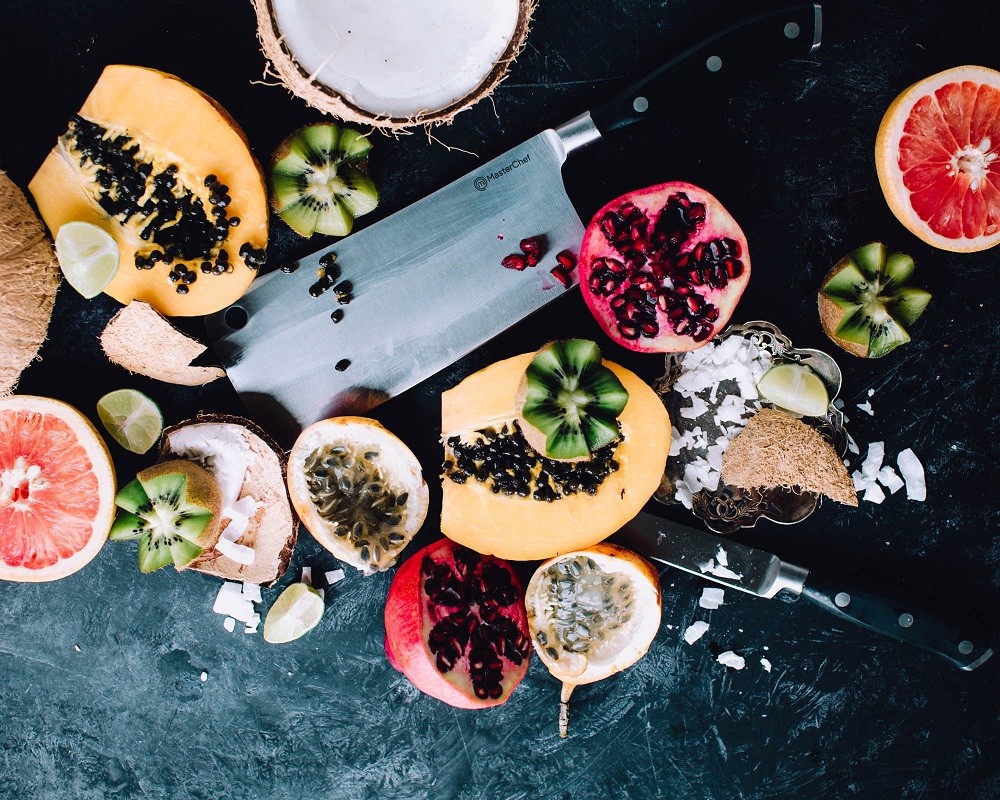
FODMAPs are found in the food you eat. The word FODMAP stands for Fermentable Oligosaccharides, Disaccharides, Monosaccharides and Polyols. These are very complex names for a collection of molecules that are found in food. In some people these molecules can be poorly absorbed. When these molecules are not absorbed in the small intestine, where they are ultimately absorbed into the bloodstream, they will continue along their journey through and arrive at the large intestine. Here they will act as a food source for the resident bacteria. The bacteria then digest/ferment these FODMAPs and can cause symptoms of bloating including Irritable Bowel Syndrome.
Where are FODMAPs found?
The following is a list of FODMAP food sources. The list is not complete and is subject to change is further research is conducted.
Excess Fructose
- Honey
- Apples
- Mango
- Pear
- Watermelon
- High Fructose Corn Syrup
Fructans
- Artichokes (Globe)
- Artichokes(Jerusalem)
- Garlic (in large amounts)
- Leek
- Onion (brown, white, Spanish, onion powder)
- Spring Onion (white part)
- Shallots
- Wheat (in large amounts)
- Rye (in large amounts)
- Barley (in large amounts)
- Inulin
- Fructo-oligosaccharides
Lactose
- Milk
- icecream
- custard
- dairy desserts
- condensed and evaporated milk
- milk powder
- yoghurt
- soft unripened cheeses (eg. ricotta, cottage, cream, marscarpone)
Galacto-Oligosaccharides (GOS)
- Legume beans (eg. baked beans, kidney beans, bortolotti beans)
- Lentils
- Chickpeas
Polyols
- Apples
- Apricots
- Nectarines
- Pears
- Plums
- Prunes
- Mushrooms
- sorbitol (420)
- mannitol (421)
- xylitol (967)
- maltitol (965)
- isomalt (953)
Foods suitable for a low-FODMAP diet
Fruits
- Bananas
- blueberries
- carambola
- durian
- grapefruit
- grapes
- honeydew melon
- kiwifruit
- lemons
- limes
- mandarins
- oranges
- passionfruit
- paw paw
- raspberries
- rockmelon (cantaloupe)
- strawberries
- tangelos
- tomatoes
Vegetables
- Alfalfa
- bamboo shoots
- bean shoots
- bok choy
- broccoli
- capsicum (pepper)
- carrot
- celery
- choko
- choy sum
- corn
- cucumber
- eggplant (aubergine)
- green beans
- lettuce (butter, iceberg)
- marrow
- olives
- parsnip
- potato
- pumpkin (squash)
- silverbeet (Swiss chard)
- spinach
- spring onion (green part only)
- squash
- swedes
- sweet potato
- taro
- tomatoes
- turnips
- yams
Milk products
- Lactose-free milk
- rice milk
- "hard" cheeses including brie and camembert
- lactose-free yoghurt
- gelato
- sorbets
- butter and margarine
Grain foods
- Gluten-free bread and cereal products
- amaranth
- arrowroot
- buckwheat
- corn (maize)
- millet
- oats
- polenta
- potato
- quinoa
- rice
- sorghum
Sweeteners
- Sugar (sucrose)
- glucose
- stevia
- any other artificial sweeteners not ending in '-ol' (eg. aspartame)
Other
- Garlic-infused oil as an onion and garlic substitute
- fresh and dried herbs and spices
- chives
- ginger
- maple syrup and golden syrup as honey substitutes









